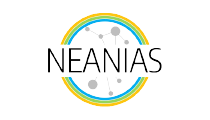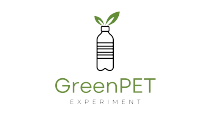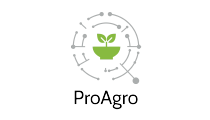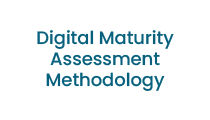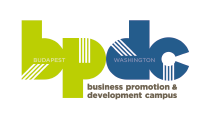2022.02.08 – 6 min read
Accelerating on a bumpy road

Hot off the presses, OpenAxel has just unveiled a comprehensive report focusing on how to shorten the gap between established corporations and innovative digital startups in Europe. An EU-funded major project and campaign that launched in 2013, OpenAxel is opening the entrepreneurial ecosystem in Europe. OpenAxel identified the key tech and acceleration stakeholders of the acceleration and digital industries and fostered coordinated involvement and smart cooperation among them.
Is collaborative innovation the cure for the European Paradox?
In theory, corporate-startup collaborations might be a viable strategy to overcome the painful effects of the so-called “Extended European Paradox”, which in more layman’s terms is Europe’s inability to convert its top class higher education, solid R&D & Tech infrastructure, not to mention massive innovations-destined public funds into commercial success. This extends to the lack of a robust European digital midmarket cohort, but also pundits keep wondering why the above ingredients and massive investment have not produced a European Google or Facebook equivalent yet.
Half of the Fortune 500 are already embracing startups, and European firms are no exception. Europe is getting traction in corporate-startup collaborations: both regarding the hip factor, the quantity and the quality of such initiatives. Corporations from France, Germany, Switzerland, and the UK are trailing the US in one single line re: startup engagements. However, an improving landscape does not equal a lack of major hurdles. Challenges abound and some soul-searching is probably in order:

While 97% of EU corporations have carefully analyzed their needs for open innovation, implementation is lagging behind by far. Too much innovation effort is spent on improving internal processes (e.g. simplification of procurement — 54%), without a dedicated executive innovation champion (46%). A majority reported lack of strategic focus, with no KPIs pre-determined, close to half said that innovation projects solely have a quick-fix, band-aid type of usage at their firms. These are all symptoms — or should we stay stage props? — of a phenomenon widely labelled as “innovation theater”, originally coined by Steve Blank. Less than a third of those corporations surveyed is engaged in cultural transformation projects, consciously becoming more entrepreneurial. That lack of a supportive, innovation-infused culture is usually a key blocker, causing the internal failure of most corporate innovation projects where the majority of executives and staff are passive, suspicious or downright hostile with innovation efforts.
Those corporations further down the path of mastering the Innovation Age expect that startup collaborations will solve business problems (83%), rejuvenate corporate culture (76%), and help enter new markets (66%) — with financial gains objectives as less significant drivers for corporate involvement in collaboration with startups. Mind the gap between those who understand the importance of culture change and those who actually do it (76% vs 30%). From a Silicon Valley perspective, understanding the mindset necessary for experimentation and having a long term bet are both essential to the success of these collaborations, and most Silicon Valley innovation centers, including those of EU origin practice that approach well.
Corporate innovators are increasingly aware that engaging startups have a very broad range of possibilities and applications beyond “swallowing” them whole, ranging from joint events, sharing resources (eg. office space or business services), accelerators and incubators, partnerships — to investments and acquisitions. However, OpenAxel found that the actual activities European corporations declare to be engaged in make them more at risk and spending prone — but also expecting quick results — than what would be optimal.
Europe’s accelerators contribute to a healthy ecosystem: need to be more transparent and outcomes-driven
The report found that European accelerators vary significantly, both in terms of the type of startups accepted (vertical, horizontal) and the lifecycle maturity of selected startups (discovery, validations, efficiency). Regarding motivation/drive of accelerators, funding sources and intrinsic goals show a loose correlation. A well-distributed-balance of funding: venture capital/business angels or public listing (32%), government grants (27%) and corporations (27%) contributes to a great extent to a balanced set of activities with ROI and ecosystem-building imperatives pursued in parallel, which is a major plus to the overall long-term health of the accelerator scene.
Corporations seem to be actively engaged with accelerators, but when it comes to the actual scope of cooperation, the picture gets blurrier. About half of EU accelerators (47%) have 1–10 corporate partners, the other half have 10–50+ corporations involved. 77% noted that they are involved in corporate matchmaking, but the efficiency of these activities is questionable: by and large they are confined to one-off intros (84%) with small-scale networking coming in second place (63%). When asked, 58% of accelerators were able to estimate the number of matchups they did, and reported an average number of total 33 successful corporate startup matches, which is pretty low — even if definitions may vary — when it comes to the whole lifetime of an accelerator.
Dealing with the potential clutter of one-off, marginally relevant intros and the low volume of locally available startups relevant for major corporations seems to be a major challenge to overcome in the next wave of collaborative innovation projects — in the future, this gap is more likely to be filled by consultants networked across vast geographic areas and reaching thousands of high-potential startups, also tapping into the local ecosystems of trust.

Having considered the hipness and dynamism in the burgeoning (critics say, already oversaturated) EU accelerator scene, an overwhelming majority of accelerators do a poor job in measuring the impact of their activities. A staggering 88% of respondents do not seem to have a clue about the total revenue of their alumni startups, and 54% were unable to answer the job creation question. US accelerators seem to be much more efficient and professional in tracking this vital data, and messages like “TechStars startups raised $2bn” are hard to compete with when basic data tracking is subpar.
How to do better across the ecosystem?
In conclusion, the report is generous with recommendations for ecosystem players: let us summarize the best ones and add a few of ours.
– Policymakers are encouraged to fund collaborative innovation pilots. Accelerators can be a vehicle cutting down on red tape in accessing these funds: a higher level of the art of observing KPIs would make accelerators capable of becoming fortified hubs, setting a quick pace of ecosystem transformation.
– Startups looking for corporate partnerships have to tread carefully and have very clearly defined expectations: a study last referenced a memorable 25% gap in the satisfaction indices of corporate and startup participants of collaborations. Without the ongoing mediation harmonizing interests, cultural clashes, communication styles etc. many prospective collaborations may be ultimately derailed, so be prepared. The whole collaboration process should be guided from the outside very consciously from Day 0.
– EU Corporate innovators should look at best practices, especially from Silicon Valley both within and outside of their industry. They can save tremendously on time and investment if they learn from the mistakes of others. They should consciously set their mind to long-term expected strategic outcomes driven by board-level champions and know that the path will be long and bumpy, but well worth it in the end.
– Both startup and corporate stakeholders should cast a very wide net in selecting prospective partners and a transatlantic scope is recommended in that regard. Physical location is less and less of an issue: also it is becoming obvious that different ecosystem traits, experiences and skills from both sides of the Atlantic should come together and produce value. The EU needs the market knowledge, smart and ample funding and laser focus on commercialization that is unparalleled in Silicon Valley. The US needs the STEM talent and healthy, not overhyped startups of Europe that are abundant now at this level of ecosystem maturity. We believe that these interests are highly compatible. It is high time now to finally go beyond bold statements and solidify transatlantic innovation structures that support that notion of joint value creation through accelerating mutually beneficial, systematic support frameworks.
George Tilesch is the US Managing Partner of Innomine Group, a transatlantic innovation consultancy supporting the joint potential of Europe and Silicon Valley across digitally transforming sectors. Download the full OpenAxel White Paper here .
The Summary Infographic:
Follow @innominegroup on Twitter, Facebook and LinkedIn.
The next wave of innovation
Recent news
that is important for us
Learn more about the latest news in innovation, digitalization and fundings. Accompany us and let’s shape the future together.
Horizon Europe 2026–27 Funding for Manufacturing SMEs
2026.02.04. - 4 min readTransform Your Production: Horizon Europe 2026–27 Funding for Manufacturing SMEs Manufacturing in Europe is undergoing a profound transformation driven by digitalisation, automation and the integration of advanced technologies. The Horizon...
EU policy and innovation update
2026.01.15. - 4 min readEurope is accelerating its transformation towards smarter, greener, more resilient industry, and manufacturing SMEs are uniquely positioned to benefit. 2025 initiatives at EU level reveal the scope of support and opportunity. In this edition,...
From Industry 4.0 to Industry 5.0: The Human-Centric Approach to Manufacturing
2025.08.06. - 4 min readThe European manufacturing sector is undergoing a profound transformation. While Industry 4.0 focused on automation, digitalization, and data-driven decision-making, the emergence of Industry 5.0 marks a shift towards a more human-centric,...
Contact
(+36) 30 123 4567info@innomine.com
Follow Us
Privacy Policy
Cookie Policy
© 2021 Innomine Group







